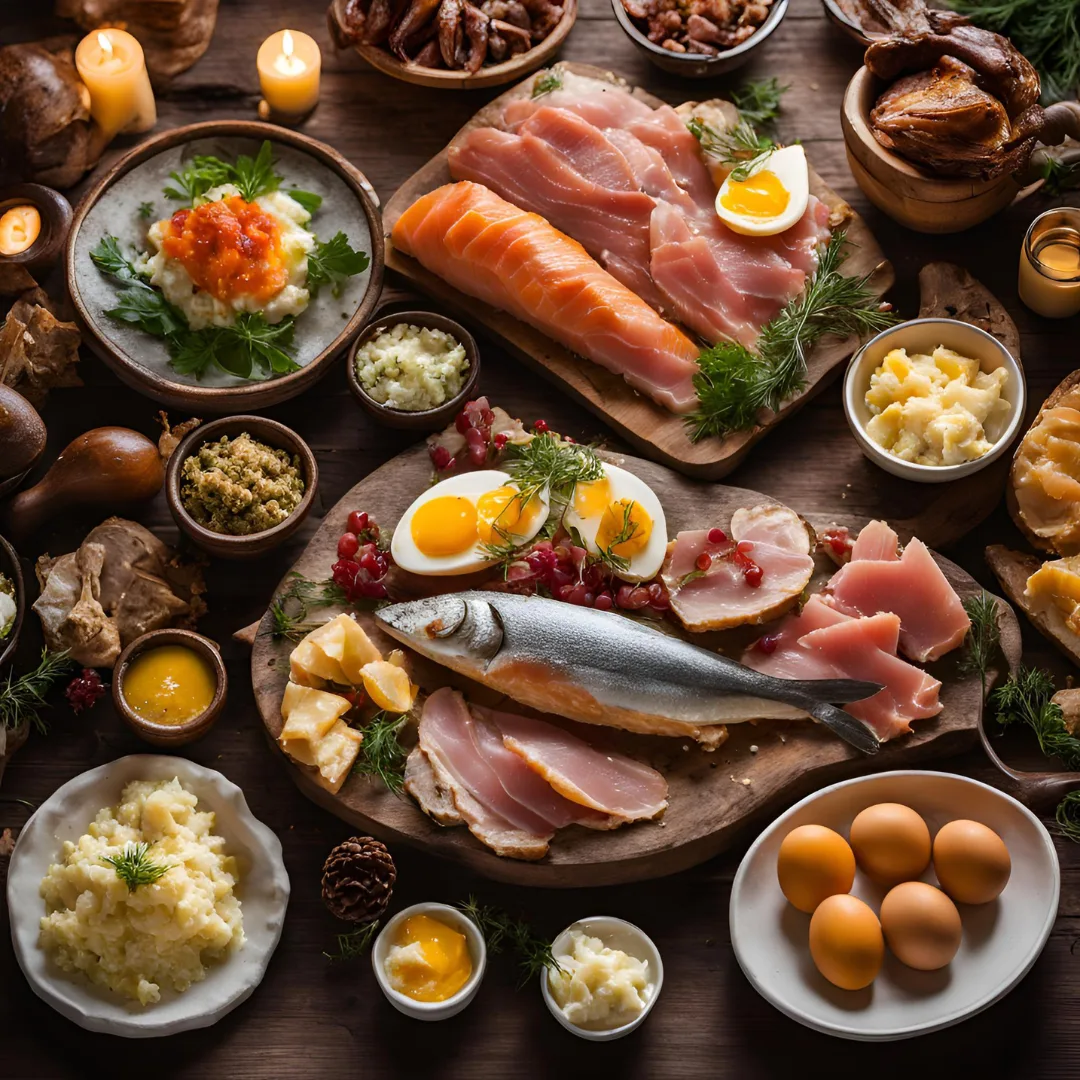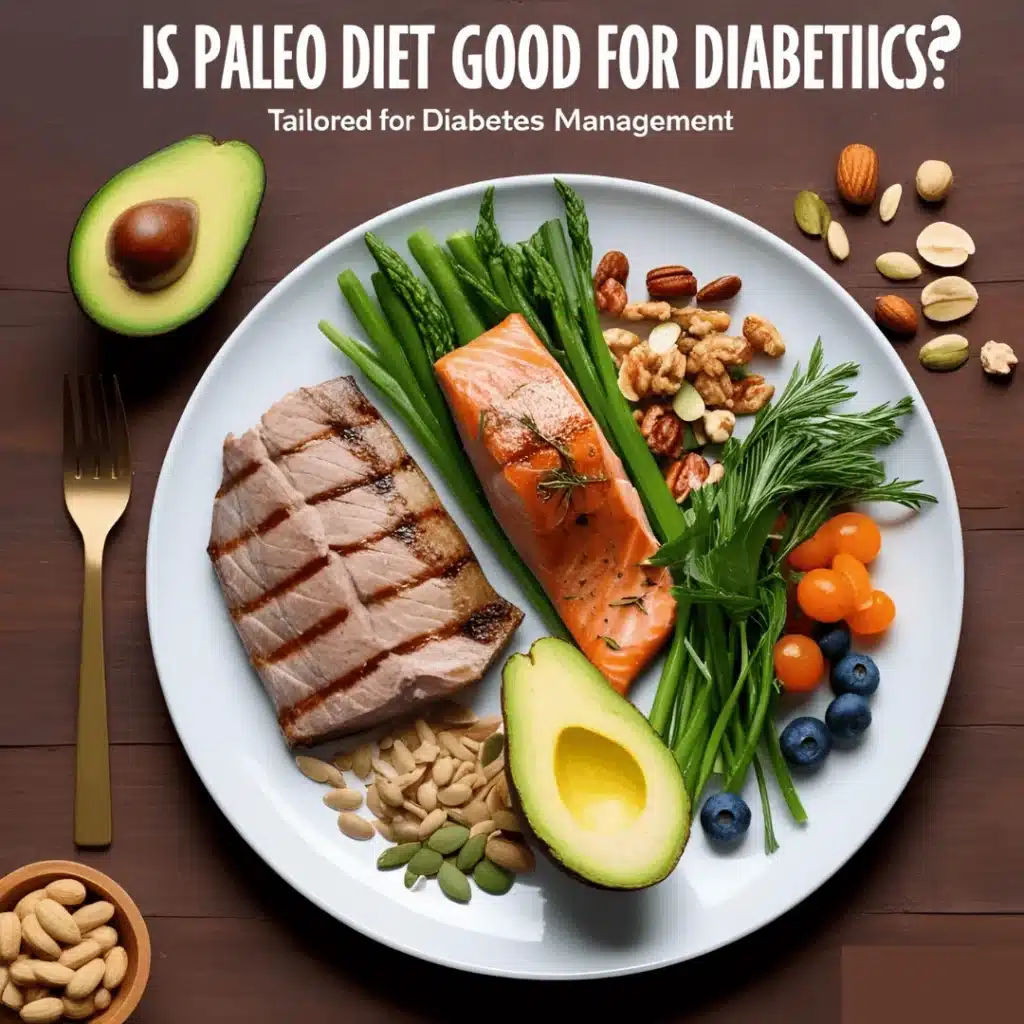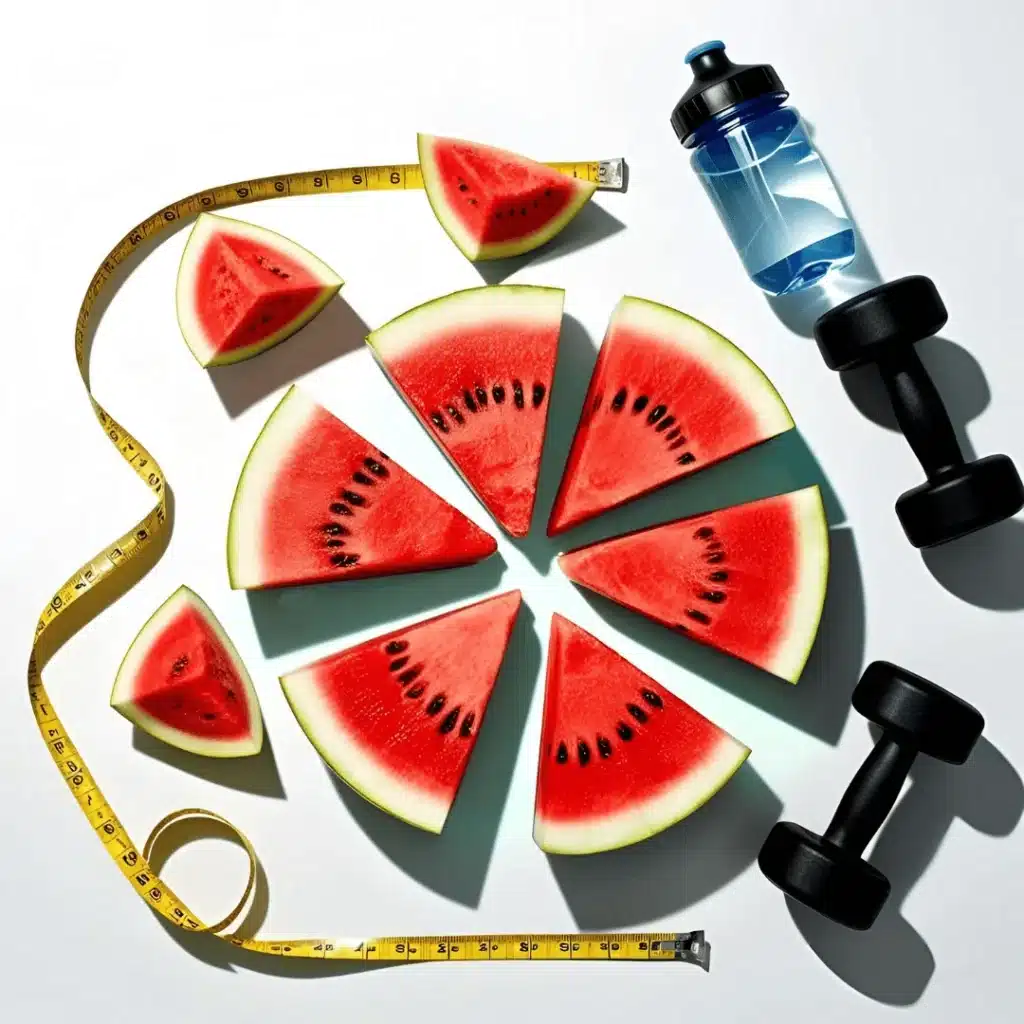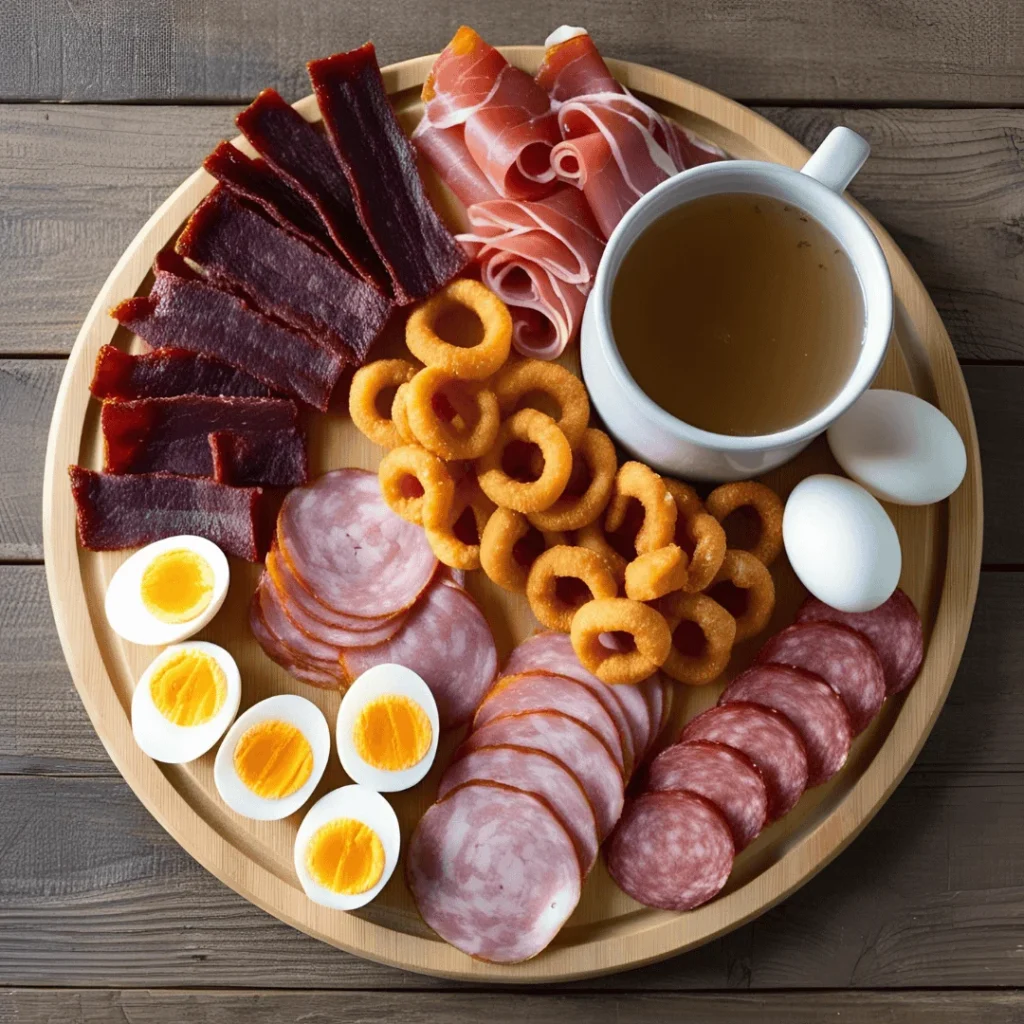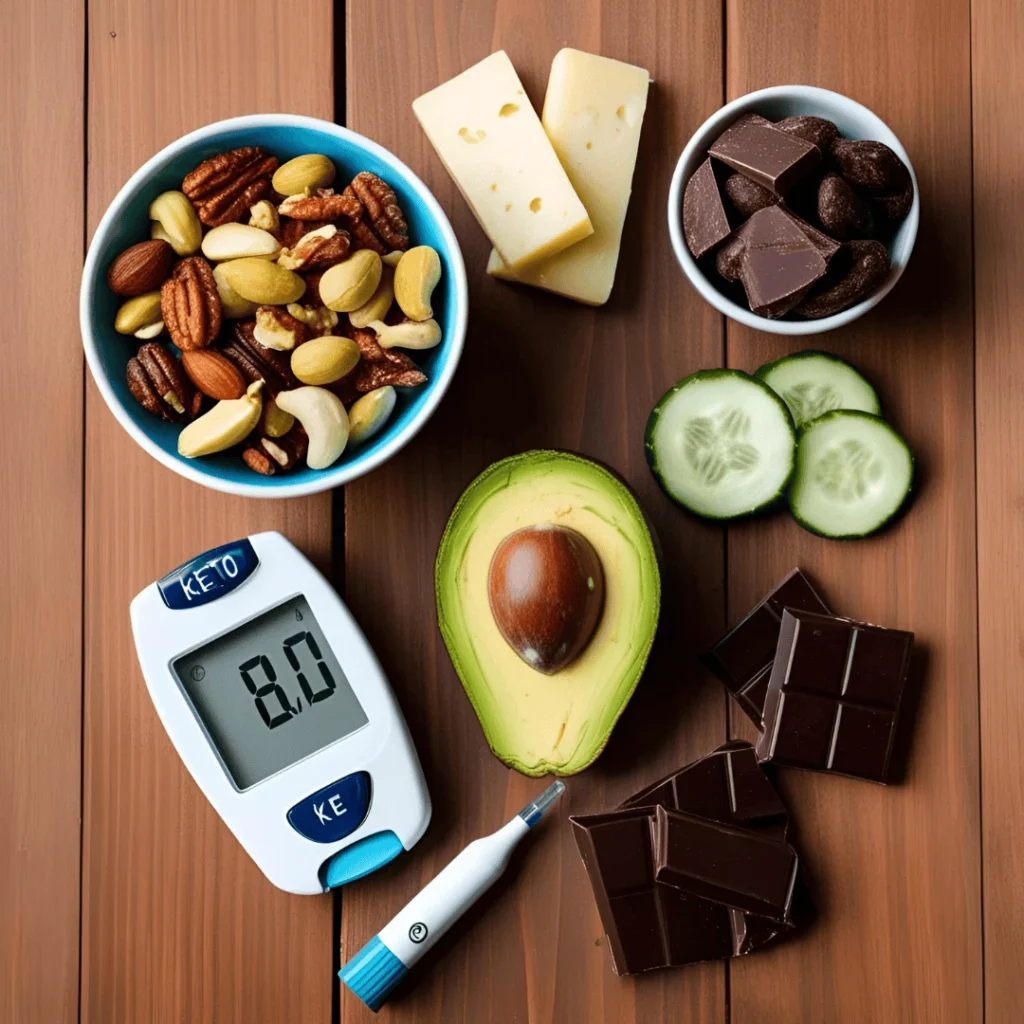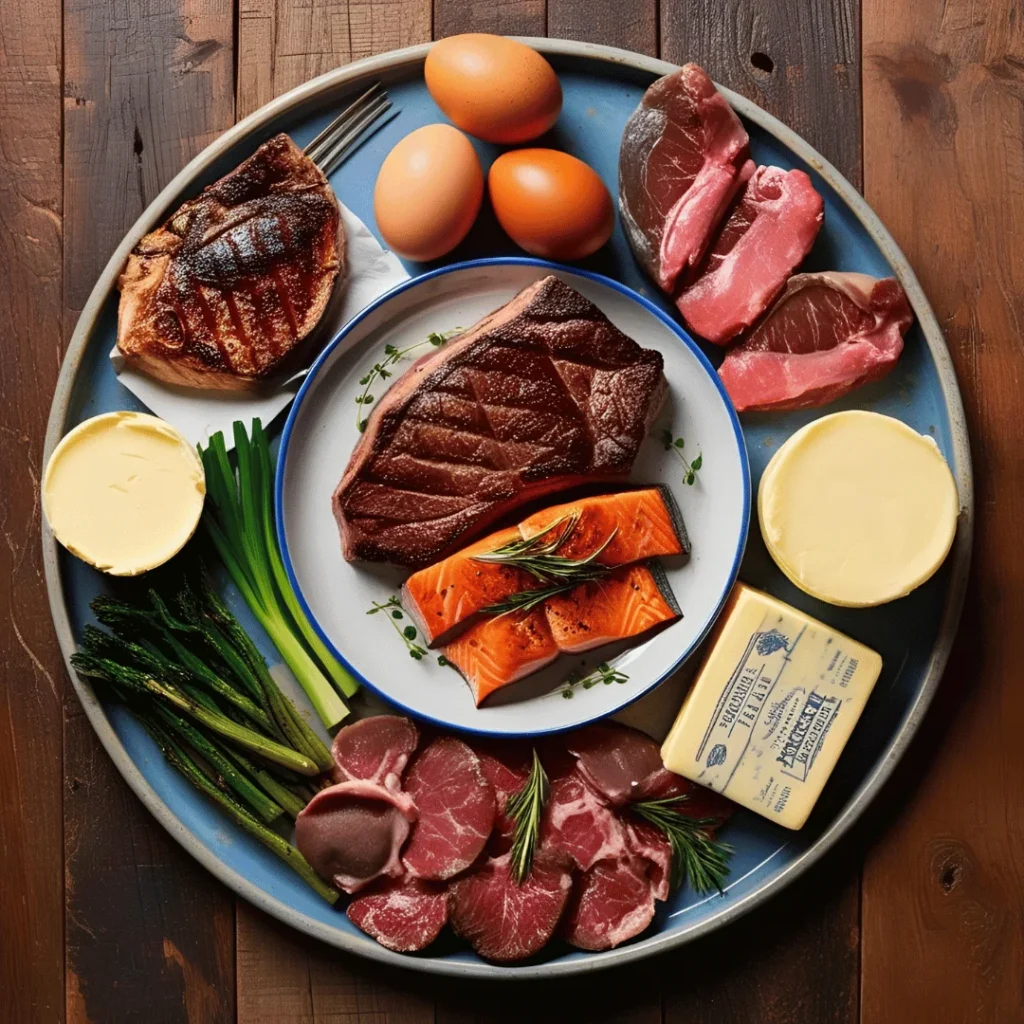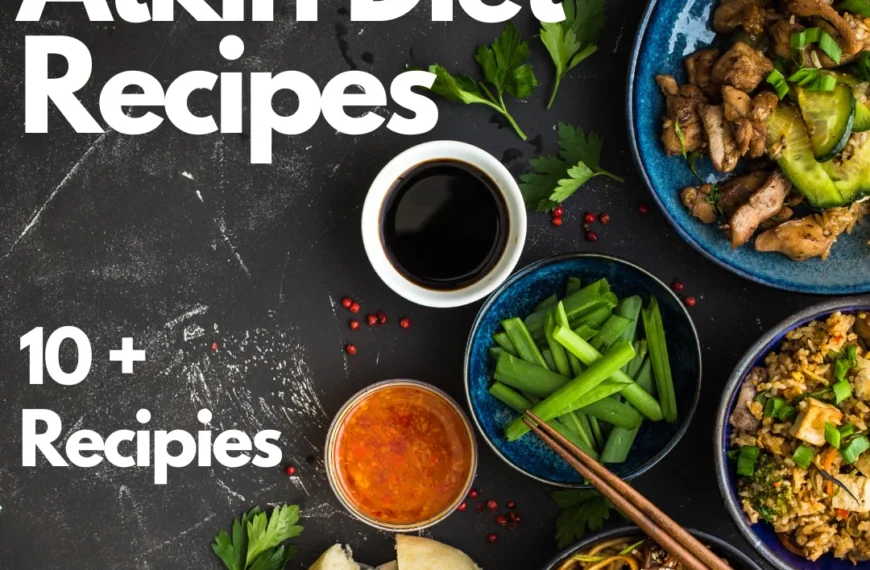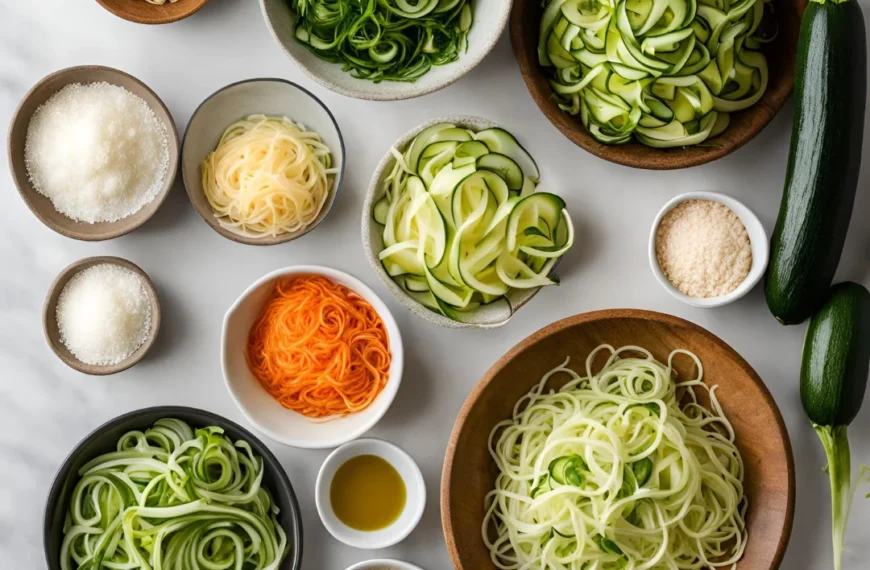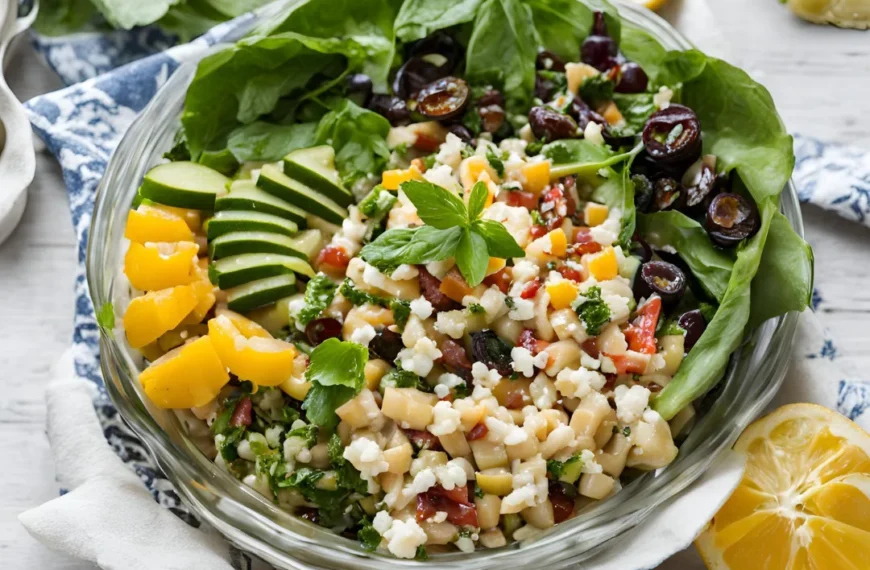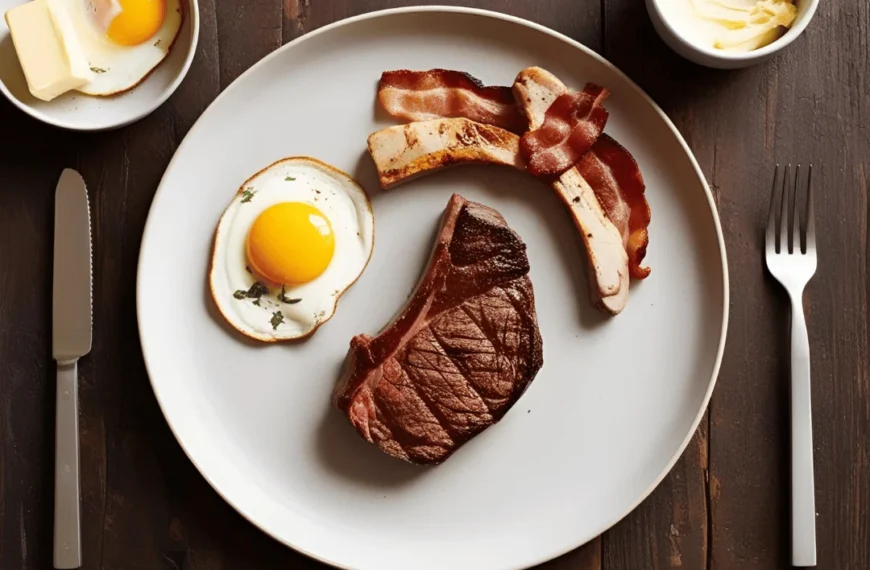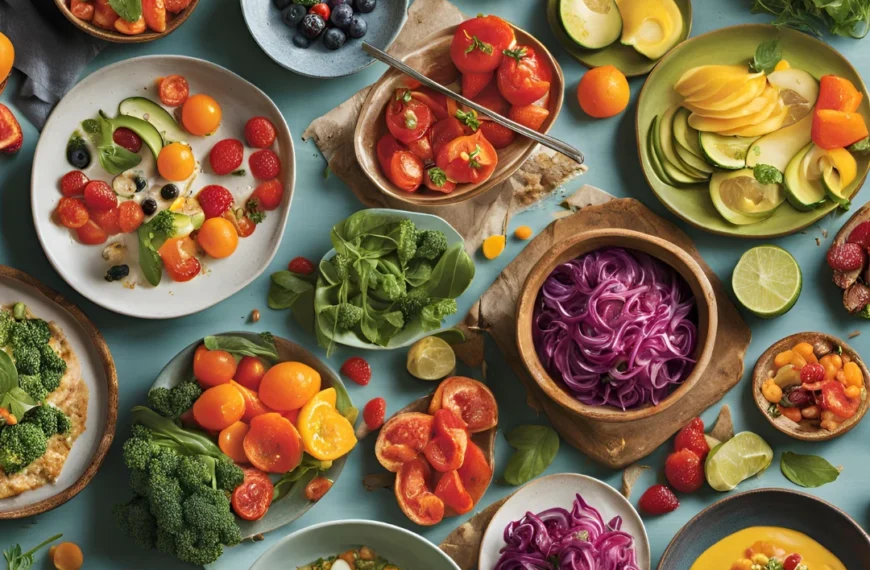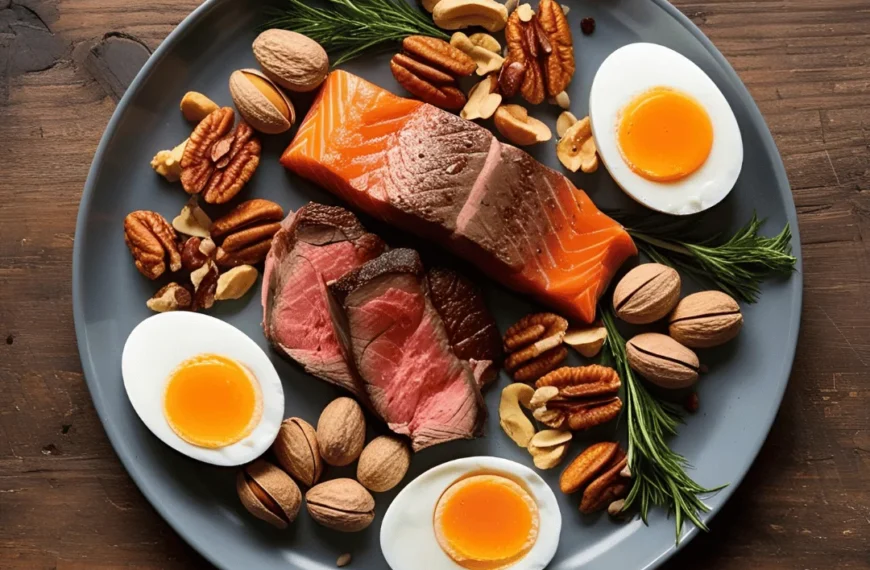Table of Contents
ToggleSummary
The Keto Food List for Beginners provides a comprehensive guide to essential low-carb, high-fat foods that support ketosis and weight loss. This list includes healthy fats like avocados, olive oil, and grass-fed butter, alongside high-quality proteins such as fatty fish, grass-fed beef, and eggs. Non-starchy vegetables like spinach, cauliflower, and asparagus ensure fiber intake without spiking carbs. Keto-friendly dairy, nuts, and seeds add variety while keeping carb counts low. Low-carb fruits such as berries and avocados offer natural sweetness without disrupting ketosis. Understanding these food choices helps beginners successfully transition into the keto diet, maintaining energy and optimizing health.
To sustain ketosis, avoiding high-carb foods like grains, sugars, legumes, and starchy vegetables is crucial. The blog also highlights budget-friendly keto shopping tips, easy meal ideas, and common mistakes beginners make, such as consuming hidden sugars or processed “keto” foods. By following this Keto Food List for Beginners, readers can confidently start their low-carb journey, improve metabolism, and achieve long-term success on the keto diet. For more insights, explore other Wise Diets resources and expert keto content.
Introduction
The keto diet has gained immense popularity for its effectiveness in weight loss, mental clarity, and energy levels. However, many beginners struggle with choosing the right foods.
A well-planned Keto Food List for Beginners ensures you stay in ketosis and achieve optimal results. This guide covers essential keto-friendly foods, what to avoid, shopping tips, and beginner-friendly meal ideas.
Understanding Keto-Friendly Foods
What Makes a Food Keto-Friendly?
The ketogenic diet revolves around low-carb, high-fat, and moderate-protein intake. The goal is to shift the body’s metabolism from burning carbohydrates to utilizing fats as the primary energy source.
The Importance of Macronutrient Balance
- Low-Carb: Restricting carbs to 5-10% of daily intake helps maintain ketosis.
- High-Fat: Consuming 70-75% of daily calories from fats fuels the body.
- Moderate-Protein: Keeping 20-25% of daily intake from proteins prevents excess glucose production.
How These Foods Help Achieve Ketosis
Eating keto-approved foods helps regulate insulin levels, promotes fat burning, and enhances cognitive function.
Essential Keto Food Groups for Beginners
A keto diet is centered around consuming high-fat, moderate-protein, and low-carb foods. Below is a detailed breakdown of essential food groups for beginners, ensuring optimal nutrition while maintaining ketosis.
Healthy Fats and Oils
Fats are the foundation of the keto diet, providing sustained energy and supporting ketosis. Choose high-quality, natural sources:
- Avocados: Packed with heart-healthy monounsaturated fats and fiber, avocados help keep you full longer.
- Olive Oil: Extra virgin olive oil is ideal for salads and low-heat cooking due to its high antioxidant content.
- Coconut Oil: Contains medium-chain triglycerides (MCTs), which are quickly converted into ketones for energy.
- Grass-Fed Butter & Ghee: Nutrient-dense and rich in CLA (Conjugated Linoleic Acid), these are perfect for cooking.
- Nuts & Seeds (Macadamia, Walnuts, Chia, Flaxseeds): Provide a great mix of healthy fats, fiber, and micronutrients.
- Avoid Processed Vegetable Oils: Soybean, canola, and sunflower oil contain inflammatory omega-6 fatty acids
Low-Carb Vegetables
Vegetables play a crucial role in a keto diet by providing essential vitamins, minerals, and fiber without excess carbs.
- Leafy Greens: Spinach, Kale, Arugula, Excellent for adding nutrients and fiber.
- Cruciferous Vegetables: Broccoli, Cauliflower, Cabbage, High in fiber and antioxidants, making them a great low-carb choice.
- Other Low-Carb Vegetables: Zucchini, Bell Peppers, Asparagus, Great for stir-fries, salads, and side dishes.
- Vegetables to Limit: Carrots, Onions, Higher in natural sugars, should be eaten in moderation.
High-Quality Proteins
Protein intake should be moderate on keto, as excessive protein can convert to glucose and affect ketosis.
- Fatty Fish: Salmon, Sardines, Mackerel, Rich in Omega-3 fatty acids, which reduce inflammation.
- Grass-Fed Beef: Provides higher levels of Omega-3s and antioxidants compared to conventional beef.
- Pasture-Raised Poultry: Free from antibiotics and hormones, making it a healthier protein source.
- Eggs: A nutrient-dense and affordable keto staple, rich in choline and essential amino acids.
- Organ Meats (Liver, Heart): Packed with essential vitamins and minerals like iron, zinc, and B vitamins.
Dairy and Dairy Alternatives
Dairy can be keto-friendly when chosen wisely. Stick to full-fat, low-carb options.
- Heavy Cream: Perfect for coffee and keto-friendly desserts.
- Cheese (Cheddar, Mozzarella, Feta): Low in carbs and high in protein and calcium.
- Greek Yogurt (Unsweetened, Full-Fat): A great source of probiotics, but should be consumed in moderation.
- Dairy Alternatives: Almond milk, Coconut milk (unsweetened), Low in carbs and suitable for lactose-intolerant individuals.
- Avoid High-Lactose Dairy: Milk and flavored yogurts contain high amounts of sugar and should be avoided.
Nuts, Seeds, and Their Butters
These provide healthy fats, fiber, and micronutrients while keeping carbs low.
- Best Nuts: Macadamia, Pecans, Walnuts, Almonds, High in good fats and low in carbs.
- Seeds: Chia, Flaxseeds, Excellent sources of fiber, Omega-3s, and antioxidants.
- Nut Butters: Ensure they are free from added sugars and unhealthy oils.
Keto-Friendly Fruits
Most fruits are limited on keto due to their high sugar content. However, some low-carb options are acceptable.
- Best Low-Carb Fruits:
- Berries (Strawberries, Blueberries, Raspberries): High in fiber and antioxidants, making them keto-friendly.
- Avocado: Technically a fruit, it is rich in healthy fats and potassium.
- Coconut: Great for keto desserts and snacks in forms like coconut flakes, oil, and milk.
- Fruits to Avoid: Bananas, Apples, Grapes, High in sugar and carbs, which can disrupt ketosis.
Condiments, Herbs, and Spices
Most fruits are limited on keto due to their high sugar content. However, some low-carb options are acceptable.
- Keto-Friendly Condiments:
- Mustard, Sugar-Free Mayonnaise: Great for adding flavor without extra carbs.
- Apple Cider Vinegar: Helps with digestion and blood sugar regulation.
- Hot Sauce, Pesto: Flavorful additions that are low in carbs.
- Herbs & Spices: Basil, Rosemary, Turmeric, Garlic Powder, Enhance taste without hidden sugars.
What to Avoid on a Keto Diet
Certain foods can disrupt ketosis and should be strictly avoided.
High-Carb Foods
- Grains: Bread, Pasta, Rice, Oats, High in carbs and should be eliminated.
- Sugary Foods: Cakes, Candies, Sodas, Packed with refined sugars that spike insulin levels.
- Legumes: Beans, Lentils, Chickpeas, Contain high amounts of carbs that prevent ketosis.
- Starchy Vegetables: Potatoes, Corn, Peas, High-carb content makes them unsuitable for keto.
Processed and Packaged Foods
These often contain hidden sugars, unhealthy fats, and additives:
- Avoid Packaged Snacks: Chips, Granola Bars, and Sugary Cereals.
- Watch Out for Hidden Sugars: Check labels for high-fructose corn syrup and other added sugars.
- Minimize Fast Food Consumption: Most fast food is fried in unhealthy oils and contains hidden carbs.
Tips for Shopping Keto on a Budget
- Buy in Bulk: Stock up on meats, nuts, and oils.
- Meal Prep: Plan and cook meals in advance.
- Choose Seasonal Produce: It’s fresher and more affordable.
- Opt for Affordable Proteins: Eggs, Ground Beef, Canned Fish.
Quick & Easy Beginner-Friendly Keto Meals
Breakfast Ideas:
- Scrambled Eggs with Avocado.
- Keto Smoothie (Almond Milk, Chia Seeds, Berries).
- Cheese and Spinach Omelet.
Lunch Ideas:
- Grilled Chicken Salad with Olive Oil.
- Zucchini Noodles with Pesto and Parmesan.
- Tuna Salad Lettuce Wraps.
Dinner Ideas:
- Baked Salmon with Roasted Cauliflower.
- Beef Stir-Fry with Bell Peppers.
- Chicken Thighs with Garlic Butter.
Snack Ideas:
- Handful of Macadamia Nuts.
- Cheese Cubes with Olives.
- Boiled Eggs with Salt & Pepper.
Common Mistakes Beginners Make When Choosing Keto Foods
Overeating Processed “Keto” Foods
- Many packaged keto snacks contain hidden sugars and additives.
Consuming Hidden Sugars in Condiments and Drinks
- Read ingredient labels for sneaky carbs.
Not Getting Enough Electrolytes
- Ensure intake of sodium, magnesium, potassium to prevent keto flu.
Conclusion
Starting a keto diet can feel overwhelming, but with the right keto food list, you can make informed choices and stay on track for success. If you’re looking for an in-depth guide on the keto diet, check out Keto Diet for Beginners: Your Ultimate Guide to Getting Started for a step-by-step approach. Additionally, meal planning is crucial for consistency and explore Keto Diet Meal Plan: Your Complete Guide to Ketogenic Success for structured meal ideas that fit your lifestyle.
By focusing on whole, nutrient-dense foods and avoiding processed options, you can maximize the benefits of the keto diet. For those interested in specific plans, Select Keto Diet Plan: Your Ultimate Guide to Effective Weight Loss and Better Health provides tailored strategies. If you’re new to keto and need a well-rounded introduction, our Ultimate Guide to the Keto Diet | Benefits, Foods, and 3 Tips for Success is an excellent starting point. Stay committed, experiment with recipes, and enjoy the transformative health benefits of a low-carb lifestyle
Ready to start your keto journey? Explore more on Wise Diets and begin transforming your health today!
FAQs
1. What are the essential foods to include in a keto diet?
A keto diet primarily consists of high-fat, moderate-protein, and low-carb foods. Essential foods include fatty meats, fish, eggs, cheese, avocados, nuts, seeds, low-carb vegetables (like spinach and broccoli), and healthy fats such as olive oil and butter.
2. Which fruits are allowed on a keto diet?
Since most fruits are high in carbs, only low-carb options like berries (strawberries, raspberries, and blackberries), avocados, and olives are keto-friendly. Fruits like bananas, apples, and grapes should be avoided due to their high sugar content.
3. Are dairy products keto-friendly?
Yes, but only full-fat and low-carb dairy products like cheese, heavy cream, Greek yogurt, and butter. Avoid milk and flavored yogurts as they contain higher sugar and carb content.
4. Can I eat snacks on a keto diet?
Absolutely! Keto-friendly snacks include nuts (almonds, macadamia, walnuts), cheese, boiled eggs, pork rinds, and keto protein bars. Just ensure they are low in net carbs and contain healthy fats.
5. What foods should I avoid on a keto diet?
Avoid high-carb foods like bread, pasta, rice, potatoes, sugary drinks, processed snacks, and most fruits. Also, stay away from high-carb vegetables like carrots and corn to maintain ketosis.

